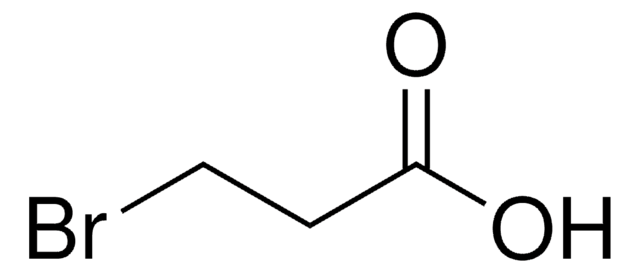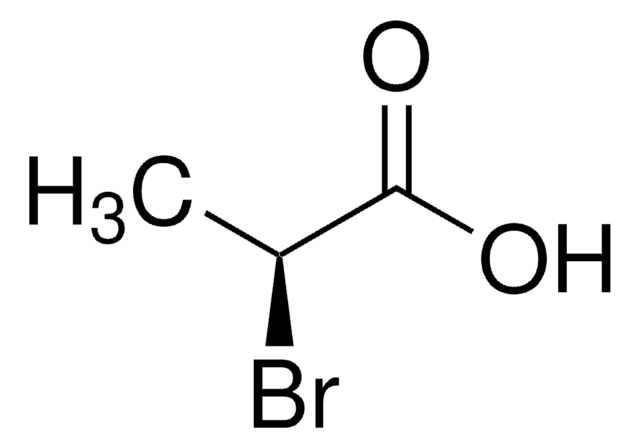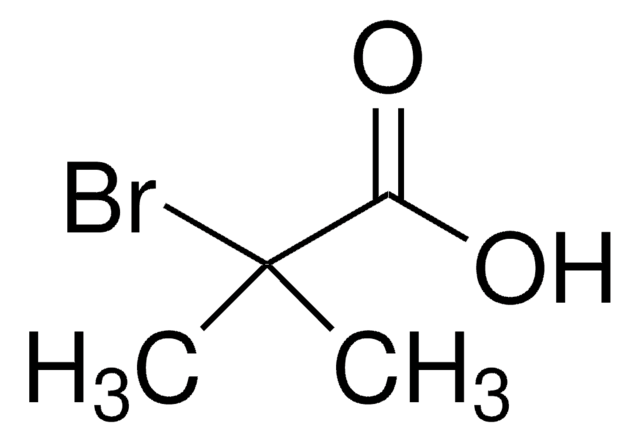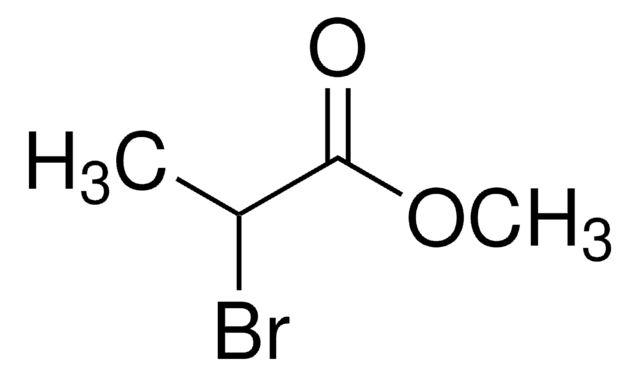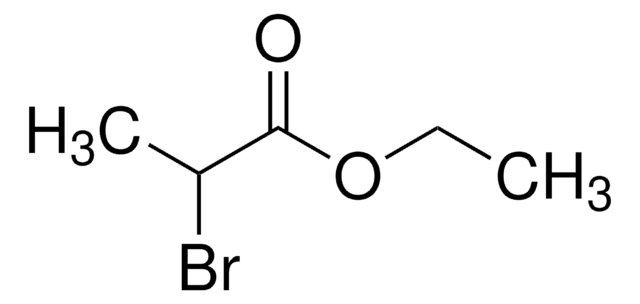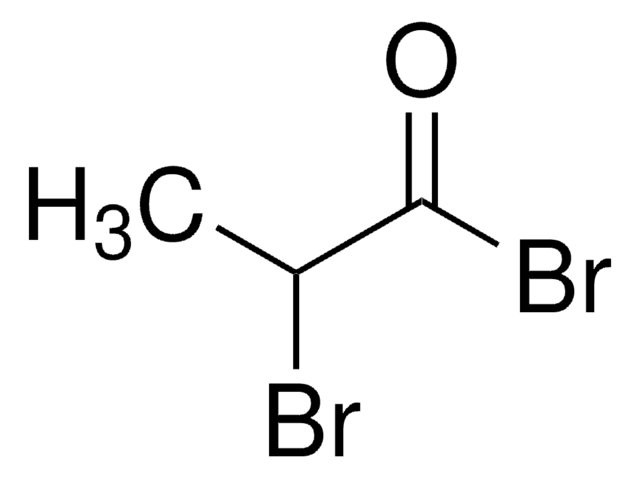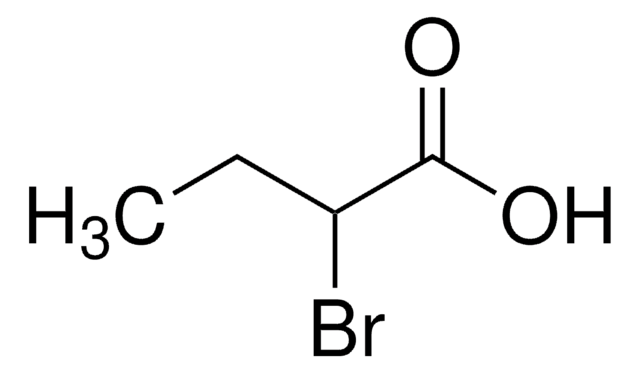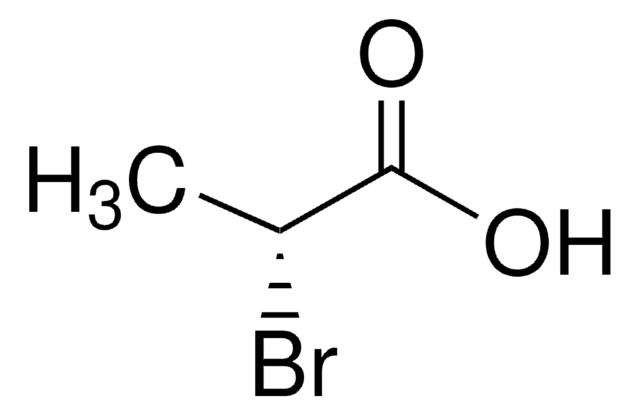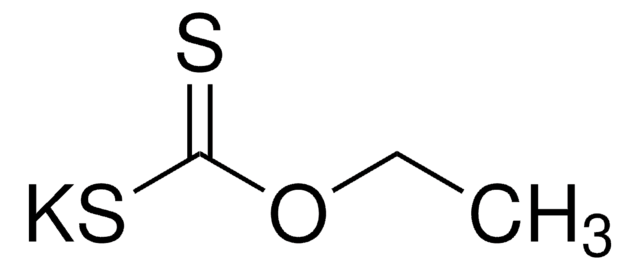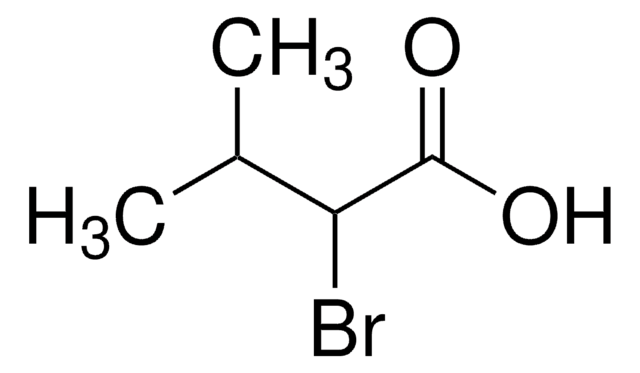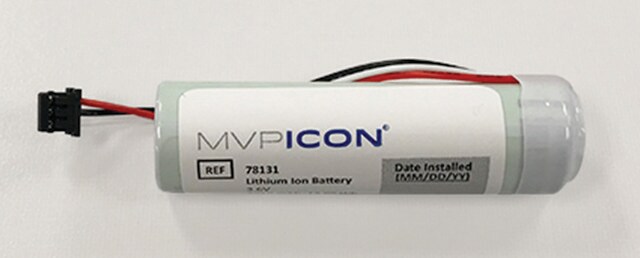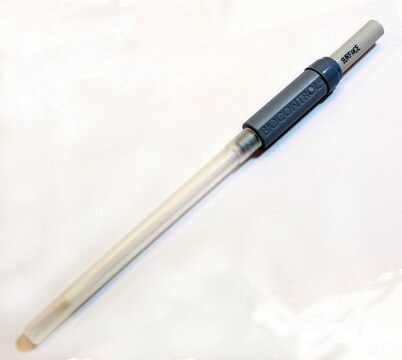B78300
2-Bromopropionic acid
99%
Synonym(s):
(±)-2-Bromopropionic acid
Sign Into View Organizational & Contract Pricing
All Photos(2)
About This Item
Linear Formula:
CH3CHBrCOOH
CAS Number:
Molecular Weight:
152.97
Beilstein:
1720261
EC Number:
MDL number:
UNSPSC Code:
12352100
PubChem Substance ID:
NACRES:
NA.22
Recommended Products
Assay
99%
form
liquid
refractive index
n20/D 1.475 (lit.)
bp
203 °C (lit.)
density
1.7 g/mL at 25 °C (lit.)
SMILES string
CC(Br)C(O)=O
InChI
1S/C3H5BrO2/c1-2(4)3(5)6/h2H,1H3,(H,5,6)
InChI key
MONMFXREYOKQTI-UHFFFAOYSA-N
Looking for similar products? Visit Product Comparison Guide
Signal Word
Danger
Hazard Statements
Precautionary Statements
Hazard Classifications
Acute Tox. 4 Oral - Eye Dam. 1 - Met. Corr. 1 - Skin Corr. 1A
Storage Class Code
8A - Combustible corrosive hazardous materials
WGK
WGK 3
Flash Point(F)
212.0 °F - closed cup
Flash Point(C)
100 °C - closed cup
Personal Protective Equipment
dust mask type N95 (US), Eyeshields, Gloves
Choose from one of the most recent versions:
Already Own This Product?
Find documentation for the products that you have recently purchased in the Document Library.
Customers Also Viewed
J E McGrath et al.
Applied and environmental microbiology, 63(8), 3333-3335 (1997-08-01)
Type strains of the purple nonsulfur species Rhodospirillum rubrum, Rhodospirillum photometricum, and Rhodopseudomonas palustris grew phototrophically on a number of two- and three-carbon halocarboxylic acids in the presence of CO2, by reductive dehalogenation and assimilation of the resulting acid. Strains
Jianyu Huang et al.
Journal of basic microbiology, 51(3), 318-324 (2011-02-08)
A 2-haloacid dehalogenase-producing bacterium, designated DEH99, was isolated from the marine sponge Hymeniacidon perlevis using a modified enrichment medium and a pH indicator method. DEH99 could degrade only half of the racemic mixture 2-chloropropionic acid (2-CPA) in the medium. The
H Xiao et al.
Chinese journal of biotechnology, 9(1), 33-39 (1993-01-01)
Candida cyclindracea lipase (CCL) was added to "sodium dodecyl sulfonate (AS)/n-butanol/n-octane/n-octane" water-in-oil microemulsion to catalyze the hydrolysis of ethyl mandelate and the esterification of alpha-bromopropionic acid with n-butanol, respectively. The catalytic activity of CCL in the above microemulsions was higher
E A Lock et al.
Archives of toxicology, 74(9), 547-554 (2000-12-29)
Oral administration of L-2-chloropropionic acid (L-CPA) to rats either as a single dose (750 mg/kg) or daily doses (250 mg/kg per day for 3 days) produces selective necrosis to the granule cell layer of the cerebellum. As part of a
O Brandsnes et al.
European journal of biochemistry, 126(2), 247-252 (1982-08-01)
The effect of temperature on the inactivation of liver alcohol dehydrogenase and on the alkylation of a model thiol free in solution by bromoacetate, 2-bromopropionate, 3-bromopropionate and 2-bromo-3-(5-imidazolyl)-propionate has been studied and the thermodynamic activation parameters calculated. All the bromoacids
Our team of scientists has experience in all areas of research including Life Science, Material Science, Chemical Synthesis, Chromatography, Analytical and many others.
Contact Technical Service